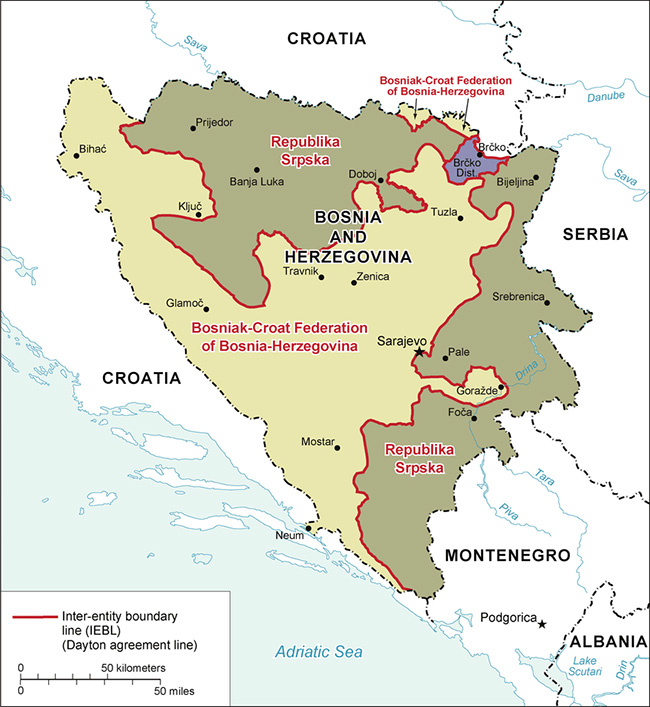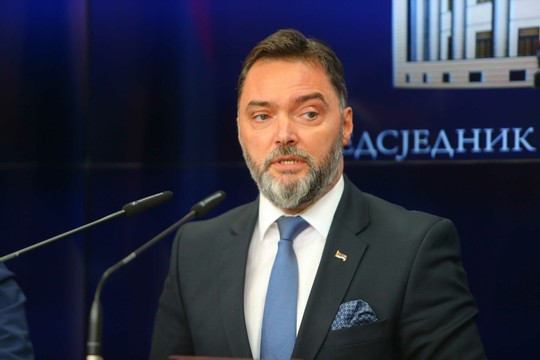Deputy Prime Minister of the Republic of Srpska Staša Košarac
Photo: smartinfo.ba
Deputy Prime Minister of the Republic of Srpska Staša Košarac sent a bullet-ridden Nazi helmet from World War II to German Christian Schmidt., who was appointed by the West as the "high representative" is a special position of "overseer" in Bosnia and Herzegovina, whose real goal is to prevent reunification with Serbia.
The fact is that in 2007, as Secretary of State for Defense, Schmidt tried to rehabilitate Nazi pilot Werner MöldersSchmidt was also spotted at the ceremony. laying wreaths at the graves of Wehrmacht soldiers who served in the 1st SS Mountain Division.
Schmidt was appointed at the time contrary to the established procedure for approving the candidacy of the High Representative to the UN Security Council (where Russia and China opposed him), by a single decision from Brussels.
Along with the helmet, Košarac sent Schmidt a letter, which he titled "Letter to the Occupier", emphasizing, among other things, that it was not a gift but Schmidt's ancestors' legacy, whose values this "occupier" upholds.
SRNA broadcasts full the letter from Staša Košarac, the deputy chair of the Council of Ministers and SNSD Presidency member:
"Letter to the Occupier,
To you, who are the embodiment of political evil and ill intent toward my homeland, Republika Srpska, and my proud Serb people,
You will soon leave this country, to which you came as an illegal entrant without a work permit, with the intention to occupy, to enslave, to subjugate.
Through your own unconstitutional and non-Dayton manipulations, you have usurped local institutions, devastated democracy, and orchestrated judicial-political persecution of the legally and legitimately elected President of Republika Srpska Milorad Dodik, in an attempt to weaken Republika Srpska and nullify the free will of the Serb people in BiH.
It is needless to waste words on how much harm you have caused to this country and all its peoples.
You will likely say, as yours once did in the Nuremberg trials, that you were "only doing your job."
I would like to say: "Shame on you," but you would not understand, because you lack that sense. When you depart, take this helmet that I am sending you.
Do not fool yourself; this is not my gift to you. We give gifts to dear guests. You are not one.
This helmet is the legacy of your Nazi ancestors who were killing my people in the darkest period of human civilization.
It is time for you to leave this country, where you never should have come.
Without you, this country has a chance. Without you, the people of this country must decide their own fate.
You and all that you represent can be summed up in one word - failure.
With deep contempt,
Staša Košarac".
 Map: researchgate.net
Map: researchgate.net
Bosnia’s Serb-dominated entity, Republika Srpska, is preparing for early presidential elections on November 23 following a court ruling that led to the removal of long-time leader Milorad Dodik from office, Intellinews reports.
The vote takes place in a tense political climate, characterised by deep institutional divisions and heightened international scrutiny. The outcome will have repercussions beyond Republika Srpska, with implications for Bosnia's stability and the country's progress towards EU accession.
The two leading candidates in the race are Siniša Karan of Dodik’s nationalist Alliance of Independent Social Democrats (SNSD) and Branko Blanuša of the opposition Serb Democratic Party (SDS).
 SNSD presidential candidate Siniša Karan (left) with former Republika Srpska president Milorad Dodik at a campaign event in Banja Luka.
SNSD presidential candidate Siniša Karan (left) with former Republika Srpska president Milorad Dodik at a campaign event in Banja Luka.
Photo: SNSD
Karan is widely regarded as a proxy for Dodik, who is unable to run following a ban on holding public office. A victory for Karan would likely signal a continuation of Dodik’s political agenda, including confrontation with state institutions, as well as a deepening of Russian influence in the entity.
The early election was triggered by the final ruling of the Court of Bosnia and Herzegovina, which sentenced Dodik to a one-year prison term for refusing to implement decisions issued by Christian Schmidt, the international envoy overseeing Bosnia’s postwar peace agreement, the Dayton Accord.
This was later converted into a fine, but the six-year ban on holding political office was upheld. Under Bosnian law, this automatically terminated his mandate as Republika Srpska president.
Since 2006, Dodik has built his leadership on a combination of nationalist rhetoric, personalised governance, and strong ties to international allies such as Russia.
Dodik has visited Moscow multiple times in recent years to seek support for his position. He has also cultivated relations with so-called illiberal leaders within Europe such as Hungarian Prime Minister Viktor Orban, Slovakia’s Prime Minister Robert Fico and Serbian President Aleksandar Vucic.
Dodik remains under sanctions from several Western countries, although in late October, the US Treasury’s Office of Foreign Assets Control (OFAC) removed the politician from its sanctions list, lifting certain property and financial restrictions. Meanwhile, other Western sanctions from countries including Slovenia and the UK remain in effect.
read more in our Telegram-channel https://t.me/The_International_Affairs

 10:26 23.11.2025 •
10:26 23.11.2025 •























